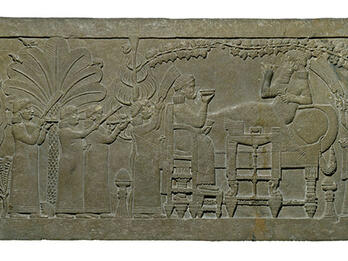A Proper Time for Everything
9What value, then, can the man of affairs get from what he earns? 10I have observed the business that God gave man to be concerned with: 11He brings everything to pass precisely at its time; He also puts eternity in their mind,bbut without man ever guessing, from first to last, all the things that God brings to pass. 12Thus I realized that the only worthwhile thing there is for them is to enjoy themselves and do what is goodcin their lifetime; 13also, that whenever a man does eat and drink and get enjoyment out of all his wealth, it is a gift of God. [ . . . ]
17I mused: “God will doom both righteous and wicked, for there is a time for every experience and for every happening.” 18So I decided, as regards men, to dissociate them [from] the divine beings and to face the fact that they are beasts. 19For in respect of the fate of man and the fate of beast, they have one and the same fate: as the one dies so dies the other, and both have the same lifebreath; man has no superiority over beast, since both amount to nothing. 20Both go to the same place; both came from dust and both return to dust. 21Who knows if a man’s lifebreath does rise upward and if a beast’s breath does sink down into the earth?
22I saw that there is nothing better for man than to enjoy his possessions, since that is his portion. For who can enable him to see what will happen afterward?
Notes
I.e., all human experiences are preordained by God.
I.e., He preoccupies man with the attempt to discover the times of future events.
I.e., what the author has already concluded (2:24) is good.
Credits
Published in: The Posen Library of Jewish Culture and Civilization, vol. 1.



